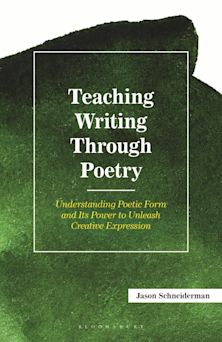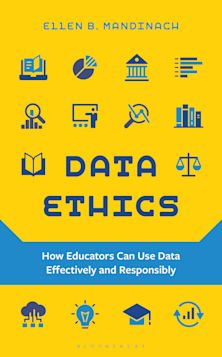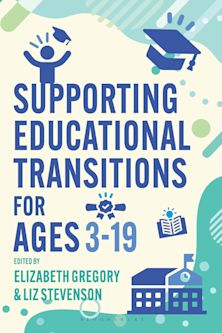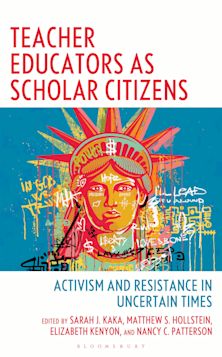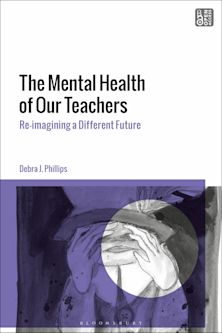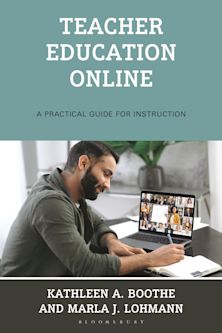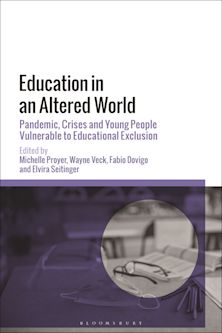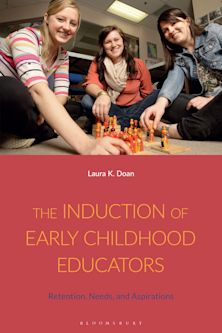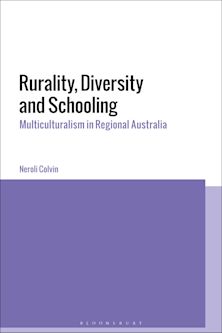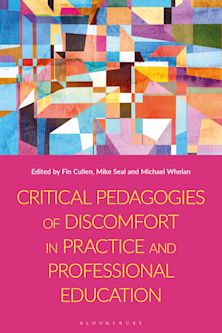- Home
- ACADEMIC
- Education
- Teacher Education
- Those Who Can
This product is usually dispatched within 3 days
- Delivery and returns info
-
Free US delivery on orders $35 or over
You must sign in to add this item to your wishlist. Please sign in or create an account
Description
In any endeavor, it is difficult to know what excellence is without knowing what excellence looks like. Linking theory and practice, Those Who Can: Why Master Teachers Do What They Do illustrates what instructional excellence "looks like" by detailing what elite instructors do and as importantly, why their pedagogical choices lead to uncommonly good student results.
Thoughtfully written, clearly explained, and thoroughly researched by a master educator with more than four decades of public school experience, Those Who Can providesschool administrators, education students, and teachers of all experience levels with a no-nonsense practical blueprint indicating what instructional strategies promote learning, what approaches undermine learner performance, and the behavioral principles underlying both outcomes.
In demystifying the so-called art of instruction, the approaches outlined in Those Who Can will improve student achievement with little investment other than the time it takes to read the book, the courage to implement its concepts, and an open-minded willingness to challenge the educational status quo of what is for the instructional promise of what could be.
Table of Contents
17. BEGINNINGS
18. REVIEWING THE ESSENTIAL PRACTICES OF MASTER TEACHERS
19. APPENDIX
20. REFERENCES
21. INDEX
Product details
| Published | Dec 27 2012 |
|---|---|
| Format | Paperback |
| Edition | 1st |
| Extent | 196 |
| ISBN | 9781475801453 |
| Imprint | R&L Education |
| Dimensions | 9 x 6 inches |
| Publisher | Bloomsbury Publishing |
About the contributors
Reviews
-
Bright outlines and supports his argument that increased student achievement is dependent on improved teacher skill with appropriate and ample research in his introduction. From there, he delineates and explains 14 practices of effective teachers. Bright makes an effort to link theory with practice, and clearly draws on his experiences as an educator to address topics including vision, curriculum, student motivation and expectation, instructional responsibility, classroom management, questioning techniques, and working with parents. Additionally, he offers practical examples in each chapter and sample rubrics in the appendix for readers to consider. The author's writing style has the conversational tone of an expert lecturer speaking to his audience. It is readable and contains a great deal of helpful research, discussion, and suggestions. It would prove valuable to all educators, particularly those actively seeking greater professional efficacy and improved student success. Bright's most obvious audience is the classroom teacher or prospective classroom teacher, and the book would be appropriate supplemental reading in teacher preparation classes. School administrators would also benefit from reading this book as they lead their staffs toward master teaching. Summing Up: Recommended. Upper-division undergraduate, graduate, research, and professional collections.
Choice Reviews
-
The book's greatest contribution lies in its recognition that masterful teaching is more than using research-based practices. It involves an unwavering belief in the importance of education as life preparation, an understanding of teachers' own role in modeling, scaffolding and promoting deep and meaningful learning, and a recognition of their own interdependence with colleagues, administrators and parents.
Dr. Giselle Martin-Kniep, president of Learner-Centered Initiatives and the founder of Communities for Learning: Leading Lasting Change®
-
I have read Those Who Can: Why Master Teacher Do What They Do and enjoyed it immensely. I liked and agreed with all of Neil Bright’s essential practices of master teachers and was particularly impressed by his thorough references to scholarly research---another characteristic I believe master teachers should possess. I want to thank Professor Bright for his contribution to this scholarship.
Xiufeng Liu, professor and associate dean for Interdisciplinary Research, University of Buffalo
-
I have read Those Who Can and have shared it with a couple of my colleagues. In fact, I have suggested that the Director of Field Placements require her student teachers to purchase this book.
Currently, I am on a U. S. Department of Education grant to transition candidates from other careers to teaching math or science at the high school level. I have 12 students who will soon be completing their professional development practicum and I am requesting that they purchase this text.
Professor Bright has delivered an important message in a pleasing tone…not something readily found in academic tomes.Linda Quinn, professor, department of teaching and learning, University of Nevada, Las Vegas
-
After reading Those Who Can, I was struck by the congruence between so many of the practices Professor Bright advocated, such as using Bloom’s taxonomy in generating classroom questions, and how we instruct our university students in our Multiple Abilities Program to craft questions for their science and social studies units. Moreover, I certainly appreciated all of the book’s citations, felt that the work would be particularly good in a Master’s program, and found myself in agreement with Mr. Bright nearly all of the time. I am glad that I bought the book and was happy that it was brought to my attention.
Madeleine Gregg, department of special education, University of Alabama
-
Since we obviously need to do a better job showing novice educators what good teaching looks like, Those Who Can is a very fine resource to start their thinking about the nonnegotiables of excellent practice. I especially appreciated Mr. Bright’s mandate that we think about the essential skills and habits of mind for students to do well in life and not merely in school and how he encouraged performative pedagogy, the safeguarding of instructional time, and the value of high instructional expectations. Professor Bright, thank you for offering rich fodder for reflection, for encouraging school reinvention of the sort that is sorely needed in many of our nation’s failing schools, and for reminding us about the power of teachers.
Maya, professor of education, Honolulu, Hawaii











